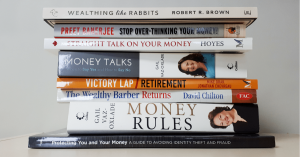Understanding trading and what it takes to trade well is a task that is riddled with confusion, contradictions and counter-intuitive thinking that can take years to sort out. What is trading? Trading is the transfer of ownership of goods and services from one person or entity to another. Trading can also refer to the action performed by traders and other market agents in the financial markets.
It is the financial markets form of trading that we will attempt to explain and in particular stock trading. To be exact, short-term individual trading of stocks, ETF’s and to a limited extent stock options; notice we said, SHORT-TERM not day-trading. Once you learn the underlying makeup of the trading process you should be able to move into and between the many products and techniques that form the world of trading.
Let’s Start with, confusion, Trading IS NOT Investing. However, almost every individual stock trader we work with uses techniques, strategies and concepts based on investing methodology to TRADE the stock market. What 99% of them are confused about is how investing concepts translates into trading performance. What does that mean? Basically, if you use technical analysis, fundamental analysis or a combination of the two and do not know the quantitative results of each methodology, you are trading blind; most traders are unaware of how, what they are doing translates into wins and losses. The value of these techniques is not in the mastery of their use; but, in the knowledge of what they produce regardless of your level of expertise and how you use them. The very best practitioners of all the various stock trading techniques rarely have win loss rates better than 50/50. Here is the really confusing part; they can win 60 to 70% of their trading campaigns with only 40 to 50 percent of their trades being winners. How is this accomplished? Because the size of their profitable trades far exceeds the size of their losing trades. They do nothing special to improve profits but everything within their power to keep losses as small as possible.

Contradictions, trading propaganda about the stock market is the trading industries main method of enticing new traders into the trading game. “Trading is easy” is propaganda, a contradiction; the trading part is easy; making money at it can sometimes be easy. However, the ability to make money consistently trading is very hard, but this is what almost all individual traders are trying to achieve when getting into the trading business. “Find good stocks and you will make money”, another contradiction; in the short-term “good stocks” go down as often as “bad stocks” or bad stocks go up as often as good stocks. “Timing is everything”, is propaganda, a contradiction, timing is a part of trading, but not a big part, it is not what makes you money; a timing system simply tells you when to get into and/or get out of the market. Most timing systems are not much better than 45-50% accurate at predicting market direction. You can trade the phases of the moon and make money just as often as using most timing systems. The trading industry is full of contradictions; what you need to know to make money consistently is how to position size, money management and the expectancy of your strategy.
Counter-intuitive Thinking, to be successful in the trading game you must question everything. Most of the common thinking by individual traders is based on statements made by market gurus that really do not have the best interest of the retail trader in mind. Much of what is put out is misdirection and should be appraised based on counter-intuitive thinking; things like:
Low dollar stocks are risky (Penny Stocks), not so, what makes them risky? Each trader determines his or her risk per trade not the market. When you look into it you will find that penny stocks on the major markets (not Bulletin Board or Pink Slip stocks) have the best risk to reward ratio of all stocks traded.
Win a lot make a lot, not so, it’s not how often you win but how little you lose that makes the difference. It is quite common that a trader win 75% of their trades making only five to ten percent on each trade and ends up a net loser overall ( after cost and losses).
You need to keep your money working, not so, over the past 100 years the major markets have been down about 65% of the time. This is why buy and hold is not a good strategy for the long-term.
The more shares the better, really bad idea, limiting the number of shares per trade is probably the best method of reducing risk a trader can use.
Good stocks make money, trading is a short-term event. In the short term there are no good stocks or bad stocks.
No way of knowing what you can make in the future, one of the least understood concepts in trading is expectancy. It provides the trader with the probability of future profitability using a particular system/strategy, and on average by how much.
Trading can be a very profitable business once you learn that much of the information available needs to be tested to see if in fact it produces what it claims or if it produces anything at all.
Winning in the stock market comes from knowing how to lose…



